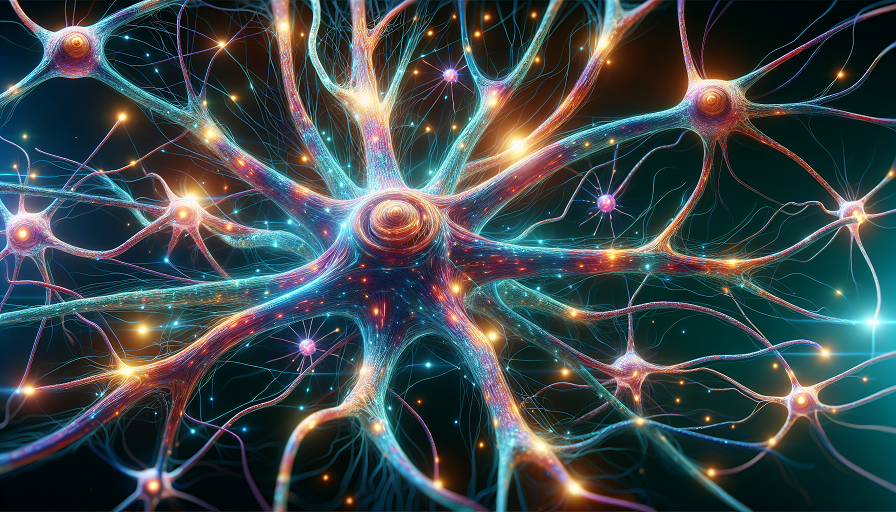
In today’s fast-paced digital world, constant notifications from our devices can feel inescapable. Whether it’s your smartphone buzzing with texts, your smartwatch alerting you to yet another email, or a barrage of social media updates, these notifications have become a ubiquitous aspect of modern life. While they can be helpful in keeping us informed and connected, there’s a hidden cost to our mental well-being. The notifications may be rewiring our brain’s reward system, affecting our attention span, productivity, and overall mental health.
Contents
Understanding the Brain’s Reward System
The brain’s reward system is a group of structures that control and regulate the feeling of pleasure in response to certain stimuli. This system is at the heart of motivation, affecting why we seek out certain experiences while avoiding others. When you receive a reward, such as a tasty treat or positive social feedback, your brain releases dopamine, a neurotransmitter that creates a sensation of pleasure.
Dopamine not only makes you feel good but also encourages you to repeat the behavior that led to the reward. In other words, it’s the brain’s way of reinforcing actions that are perceived as beneficial or enjoyable. This underlying mechanism has been crucial for survival, helping humans pursue food, social interaction, and other rewarding activities.
The Role of Dopamine
Imagine dopamine as the brain’s little cheerleader, jumping up and down, applauding you for the choices it deems rewarding. It’s what drives you to check your phone when you hear the familiar ding of a notification. Each alert becomes a potential promise of pleasure: perhaps it’s a message from a loved one, a like on your latest post, or an exciting news update. This anticipation of pleasure prompts your brain to release a small burst of dopamine even before you’ve acted on the impulse to check.
However, the continuous cycle of anticipation and reward can lead to over-stimulation. Over time, this can result in changes to the brain’s wiring, essentially becoming a feedback loop that strengthens the habit, causing the brain to crave the next dopamine hit from notifications.
How Notifications Overload the System
Notifications offer unpredictable rewards, much like a slot machine. The uncertainty is particularly addictive because your brain gets used to unexpected surprises, enhancing the release of dopamine. This effect can lead to an altered reward system where the brain becomes dependent on constant digital interaction to release the feel-good neurotransmitter.
The Impact on Focus and Productivity
Ever found yourself deeply engrossed in a task, only to be suddenly distracted by a notification? Continual interruptions can significantly affect your cognitive function, shattering your focus and productivity. Each time you switch your attention away from your primary task, your brain needs time to re-orient and regain the original focus, a phenomenon known as attention residue. The more frequently this happens, the harder it becomes to concentrate on any one thing for an extended period, causing a decrease in overall task efficiency.
The Link to Anxiety and Stress
With a constant stream of alerts, your brain’s reward system is on overdrive, continuously toggling between expectations of pleasure and the reality of constant distraction. This scenario can contribute to heightened anxiety and stress levels. The inability to detach because you’re perpetually waiting for the next notification can lead to what’s commonly known as ‘notification anxiety,’ where you feel physically anxious and stressed about missing out on important updates.
Strategies to Regain Control
While it feels challenging to break the cycle of dependency on notifications, being proactive can make a significant difference. Here are some simple strategies to help regain control over your brain’s reward system:
- Set designated times: Allocate specific intervals to check your phone and emails, reducing distractions throughout your day.
- Use Do Not Disturb: Many devices have a ‘Do Not Disturb’ feature that stops notifications during work hours or scheduled focus times.
- Prioritize: Adjust your settings to only send alerts for important messages and applications, filtering non-essential noise.
- Practice mindfulness: Incorporating mindfulness exercises or meditation can help retrain your brain to focus on the present.
Exploring Brain Supplements and Nootropics
In addition to lifestyle changes, some people turn to brain supplements and nootropics as potential solutions. These substances claim to enhance cognitive function, memory, and focus, which could be beneficial in minimizing the impacts of constant distractions. While research is ongoing, some supplements like omega-3 fatty acids, caffeine, and certain herbs may support brain health. However, it’s crucial to research thoroughly and consult with healthcare professionals before integrating any nootropics into your routine.
Maintaining a Balanced Digital Life
The journey towards a balanced interaction with technology doesn’t have to be daunting. By understanding the ways in which notifications can alter your brain’s reward mechanisms, you can take steps to reduce their impact. In doing so, you not only protect your brain’s health but also improve your quality of life and overall happiness.
Technology is an incredible tool, and when used mindfully, it can greatly enhance our lives. Creating boundaries, staying informed about brain health, and exploring methods like nootropics for cognitive support all contribute to a more harmonious relationship with the digital world. Your brain is a remarkable organ—taking a proactive approach to care for it ensures it remains resilient in our constantly connected age.

